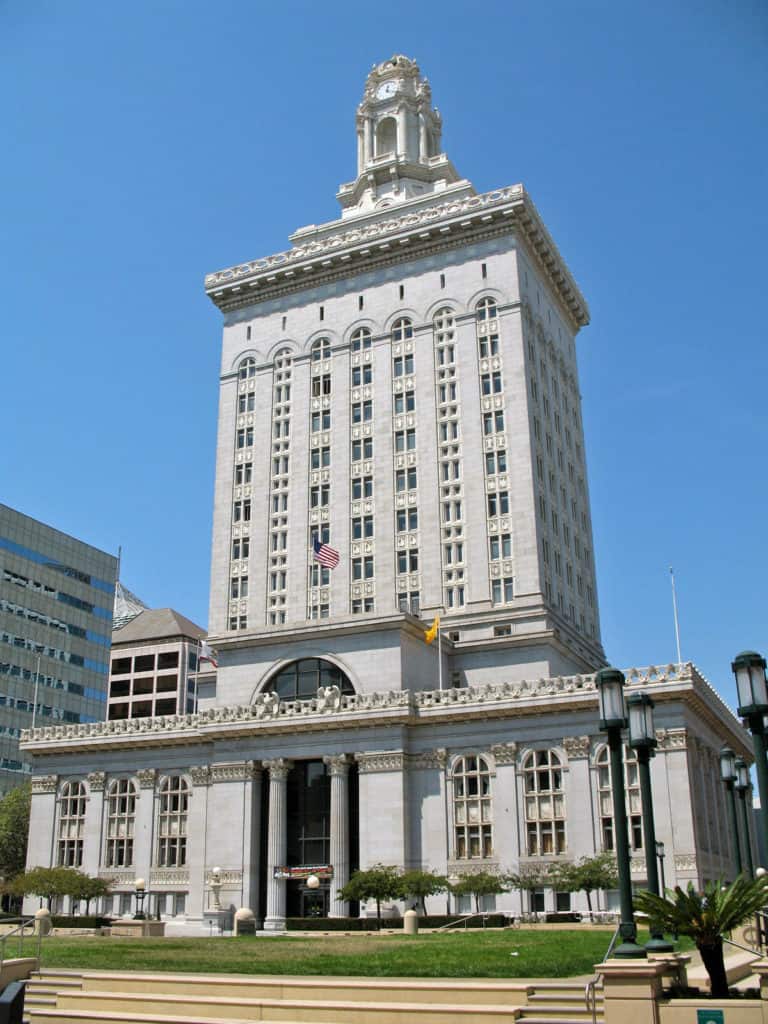In a victory for cannabis consumers, the Oakland City Council on Tuesday, November 12 voted to exempt cannabis from a proposed total ban on residential smoking and vaping in multi-unit dwellings, including condos. The vote was 6-0 with 2 abstentions.

The cannabis exemption was strongly opposed by the state’s powerful anti-smoking lobby, richly funded by the tobacco tax. They argued that second-hand marijuana smoke is as dangerous as tobacco smoke and poses unacceptable hazards to people in neighboring apartments.
“The anti-tobacco lobby is blowing smoke about marijuana,” argued Cal NORML director Dale Gieringer in testimony before the council. “Marijuana smoke is clearly safer than tobacco. It doesn’t cause cancer even in first-hand users, according to the National Academy of Sciences.” In written testimony to the council, retired UCSF Prof. Donald Abrams, a nationally recognized expert on cannabis and cancer, stated that the proposed cannabis ban “lacks a basis in science” and “would do more harm than good.” Not a single study has demonstrated human harm from second-hand cannabis smoke.
The anti-smoking ordinance was sponsored by Councilmember Dan Kalb, who originally proposed it with a cannabis exemption at the urging of Cal NORML and other advocates. However, in response to intense opposition from the anti-tobacco lobby, Kalb offered alternative versions: one without the exemption, another with a medical-only cannabis exemption, and another allowing only vaporizers. The latter two were disregarded by the Council, which focused its debate on whether to approve a full cannabis exemption or not.
Councilmember Carroll Fife moved to support the exemption, saying she had difficulty supporting governmental interference in medical use of marijuana, and that the council was putting the cart before the horse in banning cannabis smoking without having approved cannabis lounges where people could go to consume.
Medical cannabis patient and equity advocate Amber Senter of Supernova Women warned that laws of this kind would be used to target “poor people, black people, brown people, disabled people” and push marginalized groups out of their housing as part of the further gentrification of Oakland.
Speaking on behalf of local businesses, Nara Dahlbacka denounced the ban as “anti-tenant, ablest and over-broad,” and a “troubling overreach by a tobacco cessation organization,” citing the Oakland-based Public Health Institute.
Anti-tobacco advocates turned out in force at the meeting. Stanton Glantz, retired director of UCSF’s anti-tobacco program, insisted that cannabis smoke and vape pens emitted ultrafine particles that could penetrate walls and ventilation systems, producing “immediate adverse effects” on the cardiovascular system. Glantz has been known to cite “junk science” studies to equate marijuana with cigarettes, and was forced to retract a published study alleging a link between nicotine vaping and heart disease. A recent study by the American Cancer Society found a negligible risk from passive smoking.
Several witnesses testified about suffering from second-hand smoke in their apartments. Such complaints are normally handled by landlords who have non-smoking clauses in their leases; however, not all landlords have them. Cal NORML has no problem with laws to protect tenants from unwanted smoke exposure, but insists that tenants not be banned from smoking or vaping in their own rooms if no one else is harmed. Rooms can be effectively cleared of weed smoke and particulates by portable home HEPA (High-Efficiency Particulate Air) filters.
Cal NORML debunked a false claim by opponents that Prop. 64 disallows cannabis smoking wherever tobacco smoking is banned. In fact, Prop. 64 merely states that it should “not be construed to permit” such smoking. However, local and state governments are still free to pass laws to do so. Thus tobacco smoking is routinely forbidden at cannabis consumption lounges.
The motion to exempt cannabis from the ordinance was made by Councilmember Carroll Fife and seconded by Noel Gallo. Councilmember Janani Ramachandran voiced strong support, explaining that she had a medical card in the past and had to rent six different apartments while relying on the goodwill of landlords to let her use cannabis. Councilmembers Rebecca Kaplan, Nikki Bas, and Dan Kalb also voted aye, while members Kevin Jenkins and Treva Reid abstained.
Aside from residential units, the ordinance would ban smoking in outdoors areas around bars, which is presently allowed for tobacco, but not cannabis. The bar ban was backed by a group known as LGBTQ-Minus-Tobacco as well as by some bar workers who complained of smoke irritation. As passed by the council, the ordinance will also ban tobacco, but not cannabis, smoking in all multi-unit residences, including condos. Landlords can continue to ban all forms of smoking in lease agreements in Oakland.
The ordinance must go back to council for a second vote on Dec. 3, when it is expected to be finally approved.
Oakland joins West Hollywood in exempting cannabis from its anti-smoking ordinance. In San Jose, a nonsmoking ordinance was scrapped after activists pushed for a cannabis exclusion. San Francisco likewise scrapped a comprehensive smoking ban. However, anti-smoking activists have successfully campaigned for comprehensive smoking bans on cannabis and tobacco in numerous other California cities.
The second-hand smoke issue is also being raised at the local level as businesses seek to open cannabis lounges and cafés; the Sacramento City Council is expected to hear an ordinance allowing for cannabis lounges on Tuesday, November 19.
Also see: Oakland City Council To Consider Exempting Cannabis From Smoke-Free Ordinance on November 12
